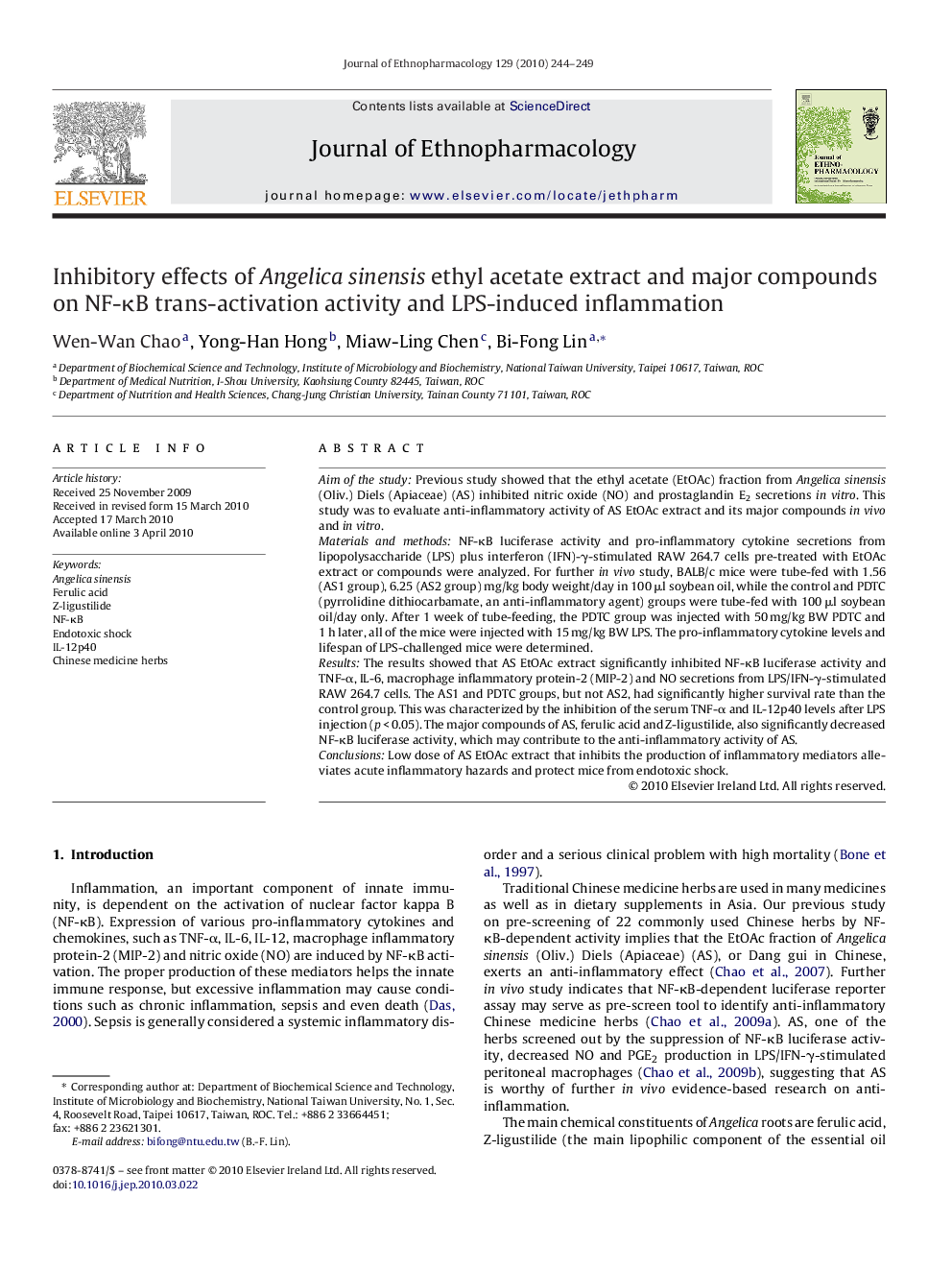| کد مقاله | کد نشریه | سال انتشار | مقاله انگلیسی | نسخه تمام متن |
|---|---|---|---|---|
| 2546286 | 1124021 | 2010 | 6 صفحه PDF | دانلود رایگان |

Aim of the studyPrevious study showed that the ethyl acetate (EtOAc) fraction from Angelica sinensis (Oliv.) Diels (Apiaceae) (AS) inhibited nitric oxide (NO) and prostaglandin E2 secretions in vitro. This study was to evaluate anti-inflammatory activity of AS EtOAc extract and its major compounds in vivo and in vitro.Materials and methodsNF-κB luciferase activity and pro-inflammatory cytokine secretions from lipopolysaccharide (LPS) plus interferon (IFN)-γ-stimulated RAW 264.7 cells pre-treated with EtOAc extract or compounds were analyzed. For further in vivo study, BALB/c mice were tube-fed with 1.56 (AS1 group), 6.25 (AS2 group) mg/kg body weight/day in 100 μl soybean oil, while the control and PDTC (pyrrolidine dithiocarbamate, an anti-inflammatory agent) groups were tube-fed with 100 μl soybean oil/day only. After 1 week of tube-feeding, the PDTC group was injected with 50 mg/kg BW PDTC and 1 h later, all of the mice were injected with 15 mg/kg BW LPS. The pro-inflammatory cytokine levels and lifespan of LPS-challenged mice were determined.ResultsThe results showed that AS EtOAc extract significantly inhibited NF-κB luciferase activity and TNF-α, IL-6, macrophage inflammatory protein-2 (MIP-2) and NO secretions from LPS/IFN-γ-stimulated RAW 264.7 cells. The AS1 and PDTC groups, but not AS2, had significantly higher survival rate than the control group. This was characterized by the inhibition of the serum TNF-α and IL-12p40 levels after LPS injection (p < 0.05). The major compounds of AS, ferulic acid and Z-ligustilide, also significantly decreased NF-κB luciferase activity, which may contribute to the anti-inflammatory activity of AS.ConclusionsLow dose of AS EtOAc extract that inhibits the production of inflammatory mediators alleviates acute inflammatory hazards and protect mice from endotoxic shock.
The survival rate in the AS1 group (44%) was also significantly higher than the LPS group according to the COX's proportion hazards regression test. Overall, the AS2 group had low survival rate (18%). Our data show that the EtOAc fraction of the AS low dose group was found to significantly protect mice against lethal endotoxemia.Figure optionsDownload as PowerPoint slide
Journal: Journal of Ethnopharmacology - Volume 129, Issue 2, 27 May 2010, Pages 244–249